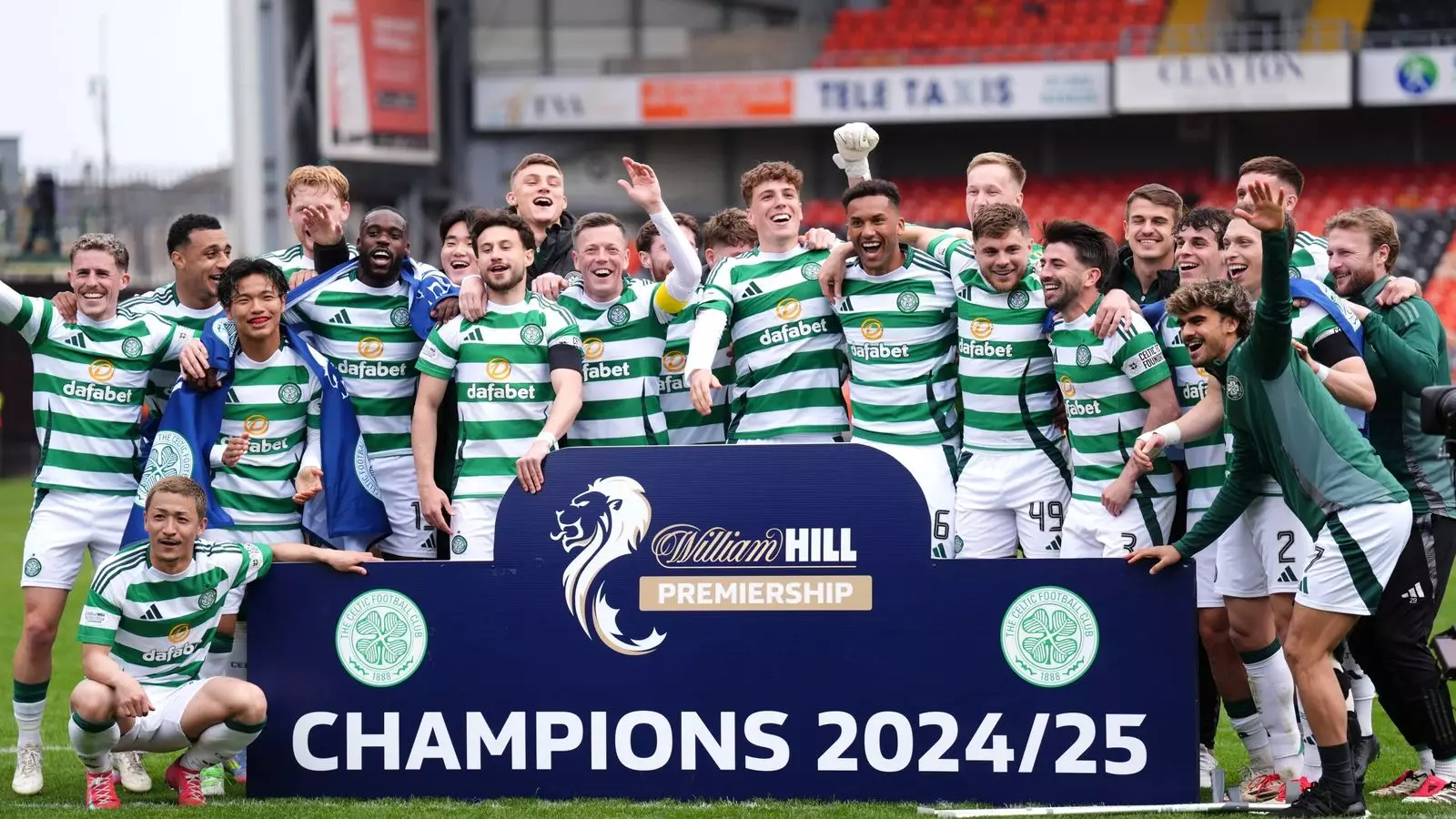It’s hard to ignore the sheer dominance of Celtic in Scottish football, particularly as they secured their fourth consecutive Scottish Premiership title with a staggering 5-0 victory over Dundee United. This win marks their 13th title in just 14 years, underscoring their status as a powerhouse in the league. Manager Brendan Rodgers, a figure of resilience and optimism, proudly claimed his 11th major trophy with this latest feat. For many, Celtic’s ability to maintain such consistency is a testament not just to their talent but also to their unyielding hunger for success. Yet, while their achievements are commendable, the circumstances surrounding this victory tell a much different story—one that casts a long shadow over the club’s glimmering accolades.
A Lesson in Fan Engagement
The jubilant atmosphere in Tannadice was punctured by poignant protests that revealed the divide between club leadership and its most passionate supporters. As over 13,500 fans filled the stadium, a barrage of tangerines rained onto the pitch—a colorful yet telling protest against Dundee United’s exorbitant ticket prices, with away fans facing charges as high as £42. In stark contrast, home fans paid a mere £10. It’s a trivial detail in the grand tapestry of football but one that highlights a broader inefficiency in how clubs communicate with and value their supporters. When fans feel estranged from their own teams’ financial decisions, it instigates Division rather than unity.
Moreover, the banner proudly displaying “Enjoy the fruits of our labor” succinctly encapsulated the frustration of many Celtic supporters. Belting out chants about ticket prices while players scored goals created a peculiar dichotomy—celebration intertwined with protest. This discontent shouldn’t be brushed aside; it should highlight the need for clubs to engage in meaningful dialogue with their loyal fanbase.
Rodgers’ Response: A Mixed Bag of Optimism and Neglect
Brendan Rodgers’ remarks after the match were filled with confidence but also danced around the core issue of fan discontent. His assertion that “we can only concentrate on ourselves” reflects an attitude that can often lead to alienation among supporters. While focusing on strengths may yield spectacular victories, it is equally crucial to address the financial challenges that fans face. After all, football is not merely a game; it is a life-altering passion that binds communities and individuals together.
Rodgers’ enthusiasm is unmistakable, but it would be a significant oversight to see it as just a glimmer of hope without acknowledging the cracks in the foundation. Ignoring the cries for equitable ticket prices risks stifling the love for the sport among smaller, loyal fan bases. It is in these moments of disparity that a great club can either flourish or flounder.
A Tribute to Unity and Reflection
On the very day they celebrated victory, Celtic fans took a moment to honor Pope Francis, marking the somber occasion of his funeral. With a minute of silence observed, Vatican flags waved across the stadium in respect. Ironically, while reverence for a global figure was palpable, the silent cries over ticket pricing remained ignored. There is much to be gleaned from the stark contrast between the somber respect for Church leadership and the buoyant yet fractured atmosphere among the fans, who feel increasingly marginalized by decisions made from boardrooms.
In an age where football clubs can often become distant entities, it falls upon leaders like Rodgers and club management to ensure that their supporters feel valued. After all, trophies can fade, but the relationship between a club and its supporters should endure—built on mutual respect and shared experiences rather than transient achievements or inflated ticket prices.
As Celtic eyes a potential treble, one can only hope that their management reflects on the passionate pleas of their supporters and considers the greater implications of their financial strategies. Ultimately, football isn’t just about winning; it’s about the community that gathers to cheer, nurture, and feel part of something larger than themselves. In that, the true essence of the game resides.

Leave a Reply